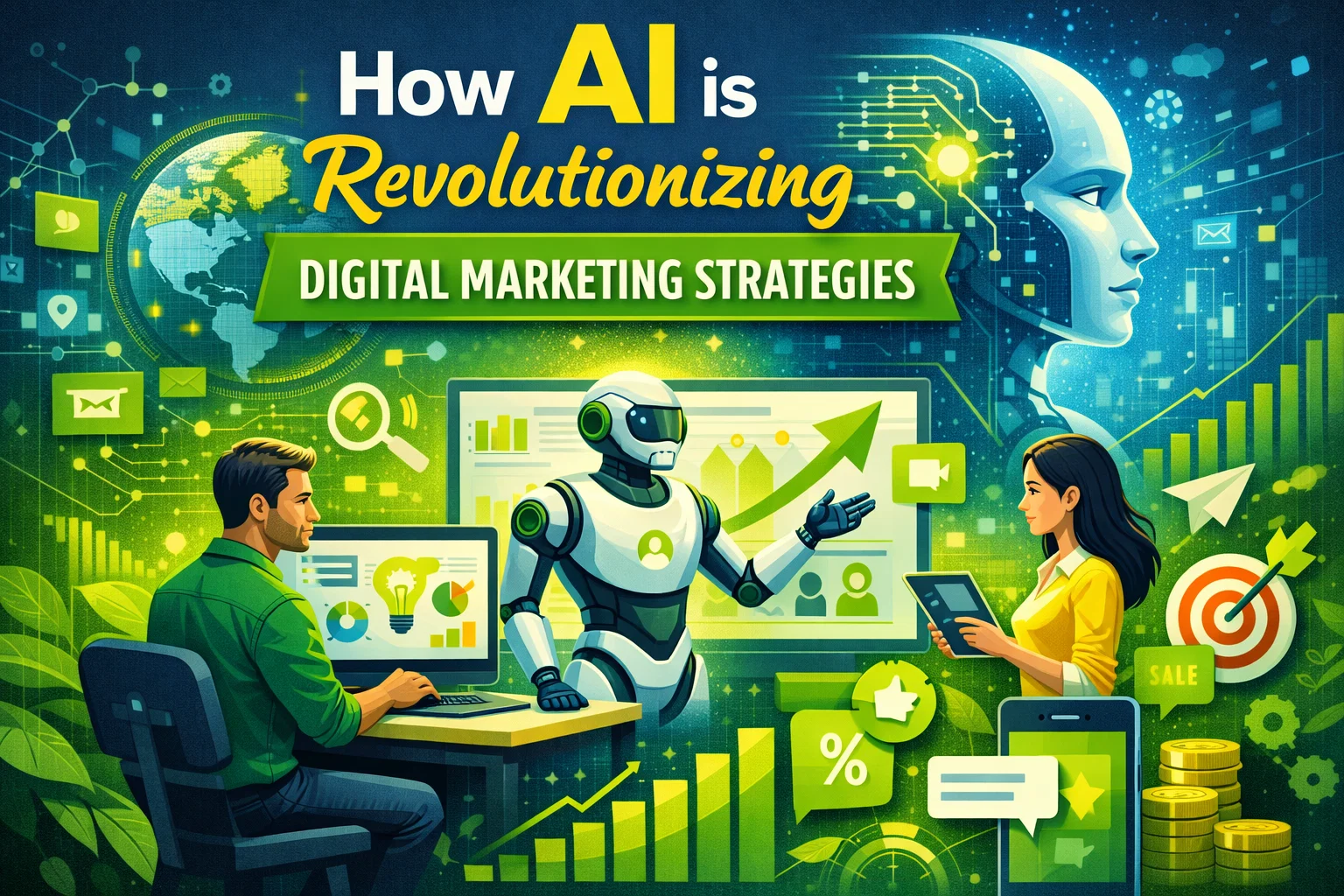Introduction:
In today’s digital landscape, having a beautifully designed website is only half the battle. For your website to truly succeed, it needs to be discoverable by search engines and provide a seamless experience for users. This is where web development and SEO (Search Engine Optimization) come into play.
While both web development and SEO are critical for the success of a website, many businesses often treat them as separate entities. However, the truth is, they must work together to create a website that not only looks great but also ranks high on search engines like Google.
In this blog, we’ll explore how web development and SEO collaborate to improve your website’s performance, user experience, and ultimately, its rankings. Let’s dive into how these two components work in tandem to boost your website’s success.
What is Web Development?
Web development refers to the process of building and maintaining a website, which includes both front-end and back-end development. Front-end development focuses on the visual aspects and user interface (UI) of the website, while back-end development involves the server-side coding and database management that power the site’s functionality.
While web development focuses primarily on creating a functional and aesthetically pleasing website, SEO aims to optimize that website so it can rank higher in search engine results pages (SERPs). Together, web development and SEO ensure that a website is not only easy to use but also discoverable by search engines.
How Web Development Impacts SEO
1. Website Speed and Performance
One of the most important factors for both web development and SEO is website speed. Slow-loading websites can negatively affect user experience, which can lead to higher bounce rates and lower rankings on search engines.
Web development plays a crucial role in ensuring fast load times. Optimizing images, compressing code, and using caching techniques are just some of the ways web developers can enhance website performance. On the SEO side, Google has made it clear that page speed is a ranking factor, especially with the introduction of Core Web Vitals, which focus on user experience metrics like loading performance, interactivity, and visual stability.
How They Work Together:
- Web developers can optimize the website’s back-end code (HTML, CSS, JavaScript) to reduce load times.
- SEO experts can ensure that the content on the site is optimized for speed by using techniques such as image compression and limiting unnecessary scripts that can slow down the page.
By working together, web developers and SEO professionals ensure that your website loads quickly, improves user experience, and meets Google’s performance criteria for high rankings.
2. Mobile-Friendly Design
With mobile usage on the rise, mobile optimization is no longer optional—it’s essential for both web development and SEO. Google uses mobile-first indexing, meaning it predominantly uses the mobile version of your site for ranking and indexing. If your website isn’t optimized for mobile devices, your search rankings can suffer.
Web development ensures that a website’s design is responsive, meaning it adapts to different screen sizes and devices. On the SEO side, mobile-friendliness is a major ranking factor.
How They Work Together:
- Web development ensures that the site is mobile-friendly by using responsive web design techniques.
- SEO ensures that mobile optimization doesn’t negatively impact page load times or content visibility.
The collaboration of mobile-first design and SEO ensures your website performs well on all devices, improving both user experience and search engine rankings.
3. Structured Data and Schema Markup
Structured data (or schema markup) is a type of code that helps search engines understand the content on your website. It provides context to your content, making it easier for search engines to index and rank it. For example, a restaurant’s website could use schema markup to tell Google the address, phone number, and business hours.
Web developers can implement schema markup in the website’s code, while SEO professionals will ensure that the schema aligns with relevant search queries to improve visibility.
How They Work Together:
- Web developers add schema markup to the website’s HTML, improving its readability for search engines.
- SEO experts identify which schema types to use for maximum impact (e.g., local business schema, product schema, review schema).
Together, they ensure that search engines can accurately index and display your website in rich snippets, which can improve visibility and click-through rates.
4. URL Structure and Navigation
The way URLs are structured can impact both user experience and SEO. Clear, descriptive URLs help users understand the content of a page at a glance and make it easier for search engines to index the page correctly.
Web development is responsible for creating a clean and organized URL structure, while SEO ensures that the URLs are optimized with relevant keywords for higher rankings.
How They Work Together:
- Web developers create short, clean, and descriptive URLs that are easy for both users and search engines to understand.
- SEO professionals ensure that the URLs contain the right keywords and follow best practices for SEO.
By collaborating, web developers and SEO professionals create a website that is easy to navigate and understand, both for users and search engines.
5. Site Architecture and Internal Linking
The way a website is structured and how content is organized can have a big impact on both user experience and SEO. Site architecture refers to the overall structure of the website, while internal linking refers to linking one page of your website to another.
A well-organized website makes it easy for users to find what they’re looking for, and it also helps search engines crawl and index your site more efficiently. SEO professionals focus on optimizing internal links, while web developers ensure the structure is intuitive and user-friendly.
How They Work Together:
- Web developers create an intuitive and logical site structure that makes it easy for users to navigate.
- SEO experts optimize internal links by ensuring that each page is connected appropriately to other relevant pages, improving crawlability and reducing the chances of pages becoming “orphaned” (isolated without internal links).
When both aspects work together, your website becomes easier to navigate for users and search engines, improving both engagement and rankings.
How SEO and Web Development Work Hand-in-Hand for a High-Ranking Website
1. SEO-Friendly Content Development
Content is king in SEO. A well-developed website with high-quality, SEO-optimized content will perform better in search rankings. SEO professionals conduct keyword research and create content that appeals to both search engines and users. Web development supports this by ensuring the website is structured in a way that supports easy indexing and displays the content effectively.
2. User Experience (UX)
User experience is an integral part of both web development and SEO. A website that is easy to use and provides a positive experience will not only keep visitors on your site longer but also signal to search engines that your website is valuable. Elements like clear navigation, fast load times, and mobile optimization all contribute to a good UX, which boosts SEO.
3. Technical SEO
Web development plays a key role in technical SEO, which involves optimizing a website’s backend to ensure it meets search engine requirements. This includes optimizing site speed, making sure your site is secure (using HTTPS), and ensuring your website is crawlable.
Conclusion
A website’s success relies on the seamless collaboration between web development and SEO. While web development focuses on creating a functional, user-friendly website, SEO ensures that the website is optimized for search engines, making it visible to your target audience. When both teams work together, they can create a high-ranking website that performs well, engages users, and ultimately drives conversions.
If you’re looking to build or optimize a website that ranks well in search engines, Website Legends can help. Contact us today for web development and SEO services tailored to help your business succeed online.
FAQs:
1. How does web development affect SEO?
Web development affects SEO by ensuring the website is optimized for speed, mobile-friendliness, and usability. Elements like site structure, internal linking, and schema markup are all part of web development that influence SEO rankings.
2. Can SEO be effective without good web development?
No, SEO and web development must work together. Even the best SEO strategy won’t work if the website is slow, difficult to navigate, or not mobile-friendly. Good web development ensures that SEO efforts can be fully realized.
3. How do web development and SEO work together to improve website rankings?
Web development ensures that a website is user-friendly, fast, and mobile-responsive, while SEO focuses on optimizing content, keywords, and technical aspects. Together, they ensure that a website is visible to search engines and provides a positive user experience.
4. What is technical SEO in web development?
Technical SEO involves optimizing the backend elements of a website, such as page speed, mobile optimization, URL structure, and ensuring that the website is secure (HTTPS). Web developers handle the technical aspects, while SEO professionals ensure these elements align with SEO best practices.
5. Why is mobile optimization important for SEO?
Mobile optimization is critical for SEO because Google uses mobile-first indexing, meaning it ranks the mobile version of your site higher. A responsive website that functions well on mobile devices improves user experience and SEO rankings.



